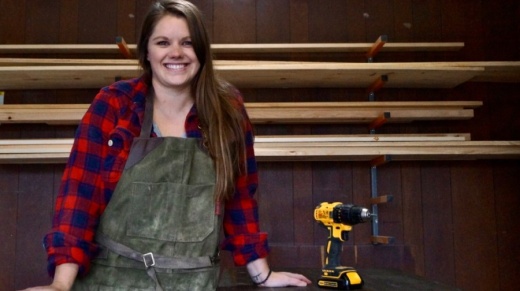“I just came up through several major federal contractors and decided after a while that there were a lot of things I didn't like the way they did,” she said. “And I said, 'I think I can do it better, but more importantly, I can take better care of people doing it.'”
Morris opened Little Proposal Shop in 2012. The business specializes in proposal and grant development, support and writing services.
For a traditionally male-dominated field, Morris said there has been a significant uptick in women getting involved in federal contracting in the last 10 years. There are now more women CEOs and high-ranking executives in the field than when she first entered it, she said.
“It's interesting because the push for diversity has been somewhat helpful in that regard. But I think in most cases, most of us would say we just earned our way to the top of ourselves, and we didn’t need a policy that said you need to hire more women,” she said. “I think all of [the growth of women in the field] was, generally speaking, earned in the last several years. And I think that's a good thing because that means they're truly qualified.”
Industry leadership
Nearly 20%, or 1.1 million, of all small businesses in the United States are owned by women, according to a January report from the United States Census Bureau. Women-owned businesses make up 21.8% of those in the Greater Austin metropolitan area, according to an August report.
However, for traditionally male-dominated industries including construction, contracting and trade fields, some Round Rock and Hutto women business owners have highlighted some of the challenges—and moments of empowerment—that come through working in these industries.
Growing up outside of Houston in Magnolia, Round Rock resident Emily Rigby dreamed of building a fort in her backyard. Instead of doing it for her, Rigby’s dad guided her through the process of crafting her first project, and she has been building ever since.
Rigby launched Rigby & Co., a custom furniture business, out of her Round Rock home in August. She said it is not unusual for prospective clients to think her fiance, Paul Kos, is the one handling the building portion of the job. While Kos said he is Rigby’s biggest supporter, the inspiration behind and execution of the business is all her.
On a recent business trip to Dallas, she and Kos delivered and began assembling a kitchen table for a couple and their three daughters. The couple insisted their daughters watch Rigby reconstruct the table.
“She’s like, ‘I just want them to see it,’’’ Rigby said. “It doesn’t have to be a man that uses power tools. It can be a woman too.”
While some fields have heightened discrepancies between the number of male and female employees, the restaurant industry can struggle with its own gender imbalances, Round Rock restaurant owner Joanna Meyer said.
At Filipino restaurant Little Mama’s, co-owner Meyer was drawn to the restaurant industry as a means of sharing part of her Filipino heritage with the Round Rock community. For more than six years, she has run the restaurant alongside its namesake: her mother, Nita Armildez.
Prior to entering the business, Meyer said she did not fully realize the ways in which some aspects of the industry were male dominated.
“Not that I agree that the kitchen is a woman’s role, but growing up, that’s what I’ve always known,” she said. “Of course, you always have an uncle here and a brother there that likes to cook, but growing up, it's always been women in the kitchen.”
Meyer said some customers enter the business with the assumption the restaurant is run by a man. For her, she said the name “Little Mama” is a reminder of who is at the root of this business’s success, right down to the dishes served.
Her brother and some friends assist with some of the grilling and other preparations. However, when it comes down to cooking, Meyer and Armildez are in charge.
“I'm very proud to stand with my back straight, shoulders back and everything to say that I cook. I am the woman that goes back there and cooks your food,” she said. “It makes me very proud to say that it’s two women at the stove.”
Evening the playing field
Lisa Gorenz is the owner of Hutto Electrical Services and has worked in the electrical industry for five years. For an industry that is predominantly male, the root of her frustrations often stems from not being taken seriously. It is not uncommon for her suggestions to be dismissed, only to be brought up later by a male electrician, she said.
However, she said an area where she feels the most guarded is when it comes to her personal safety.
“Worrying about my personal safety on job sites—you know, it can be concerning,” she said. “You're always supposed to be aware of your surroundings, but if you're the only woman on a job site for 20 or 30 minutes, it's always in your head about your personal safety.”
Change is slowly beginning to take shape, Gorenz said. She said she is beginning to meet more fellow women electricians and electrical contractors.
With a stronger appreciation for trade school professions beginning to emerge, she said her dream is that more young women will be able to envision themselves in a trade program if a four-year education or alternative career path does not appeal to them.
Her ultimate goal for Hutto Electrical Services is to develop a scholarship program to support young women entering the field. Someday, she said she hopes to see trade school programs with equal enrollment of men and women.
“The excitement that I feel every day, getting up and putting my tools on and working on the job? I still am so excited about it,” she said. “I would love to get to the point where my company can offer that back to the community. I would say to anyone in the trade, especially women: work hard, to take pride in your work and to stand up for yourself.”





